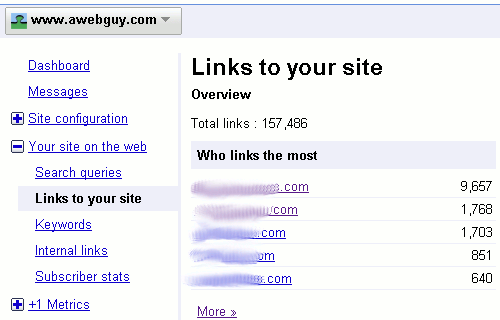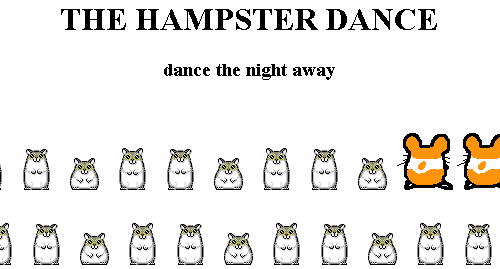
I have an uncommon analogy for you to consider today. I sometimes feel a bit like a mad scientist slinking into my secret laboratory, just a little bit like Dr. Frankenstein. It seems especially real on days when I sit at this computer for sixteen hours, nap for three hours, and then return with my crazy mad scientist hairdo and coffee breath. Creepy? Perhaps, but it is always fun to exclaim “It’s Alive!” after it all comes together just right.
I realize that some people are squeamish about biology, but don’t worry, we are just imagining this for a few minutes. Think of it like a science fiction movie scene.
Try to picture the Internet as a sci-fi creature with living tissue, nerves, and blood vessels growing every day. It is alive and growing, and it has defense mechanisms just like most organic life forms. If you introduce a foreign object, it will either accept it, or it will reject it.
Now try to picture a surgical introduction of an organ transplant of a man-made synthetic tissue. Your website, along with the rest of your online branding assets, make up that donor organ. In the beginning, it is laid on the surface of the huge Internet organism, and surgically connected by way of new social networking efforts and a micro-web of hyperlinks to and from other websites. This is the toughest time for the transplant, and requires a lot of nurturing.
The donor organ is nourished with the textual content of the website, but it cannot live on its own for very long. It will need to connect with and become a part of the larger organism. The surgical team (web developers, SEO, owners, management, and etcetera) will need to work diligently if the donor organ is to be accepted to live and grow as a healthy addition to that larger organism.
Like any organ transplant, if the organ is not well-matched, it will not grow, and it will be rejected. To improve its odds of acceptance, the website medical staff needs to introduce antibodies to the larger Internet organism, and connect the nerves (the people) carefully. Think of the antibodies as the useful things the website has to offer, and the nerves as the people. The delivery method is social media and appropriate business networking with existing parts of the larger organism. You know, instead of hypodermic needles and pills.
The useful “antibodies” help to keep the nerves (the people), and other defenses of the large creature soothed, and even bring it to embrace the new donor organ (website). It is critically important that the surgical team connects the right nerves in the right places in order to make it a healthy transplant.
Why the Organ Transplant Analogy?
This concept came to mind as a prospective client asked me to help her launch a new surgical center website and social media campaign. She did not seem to grasp all that really goes into developing a successful online presence, just as I don’t fully understand how to perform surgery. She mostly just wanted to believe that a good website with a little search engine optimization fairy dust and social media chattiness was all it took. That is kind of like if I assumed surgery just takes some sharp knives and clean towels.
Things such as targeted marketing using customer modeling based on demographics, psychographics, and propensity analysis held no importance to her. She didn’t understand or want to accept those concepts in the beginning, just as I don’t understand why they can’t easily replace my blackened smoky lungs with a new pair.
While visiting with her, I decided that I needed an analogy, so I used the example of the online marketing work I do for myself. That is easy, because I never have to worry about treading on a client’s non-disclosure agreement (and most of my clients require them). It also shows that I have faith in what I was telling her … after all, I performed the same surgery on myself.
So, I explained that there are over 157,000 links pointing to my blog articles, according to Google Webmaster Tools, and that indicates a healthy transplant.

They each add up to connect my blog to the rest of the Internet organism. They are like the nerves and the blood vessels that have adopted my blog as a part of the larger organ which is the Internet. Now my blog helps to nourish the larger organ, and the Internet nourishes my blog as an accepted donor organ.
Then she was concerned about how much it would cost to do it the right way, but without any apparent concern about the cost of doing it the wrong way. Of course, everybody wants to know the cost, but as I’ve explained before, simply asking “How Much Does SEO Cost?” is the wrong question … for many reasons.
The cost of good marketing is kind of like paying taxes. If somebody asks me about taxes, I will tell them I’d prefer to pay a billion per year in taxes, because that means I earned a lot more than that! Similarly, if you spend a lot of money on marketing … the right marketing … it pays you many times whatever you pay for it.
She eventually steered away from her cost concerns, and she began to recognize that she was doing this to increase profit … and not to waste profit. Then she was concerned about how long it would take. Of course, we all want things fast … especially when it comes to money. The more important and seemingly obvious consideration is not only in how long it takes, but whether you implement the skill, the time, and the effort to make it possible at all. If you are doing it well, the time frame is shortened accordingly.
Do Surgeons Have All the Answers?
I told her that I could create the tissue in my lab, surgically implant the tissue into the Internet body, help her with the antibodies, and nourish its growth. Then, in her wisdom, she decided that she just wanted me to create the tissue, but that she would handle the surgery and the after-surgery care.
This was because she thought it would save her some money. Yes, the surgeon decided to be a marketer … or to assign it to somebody she could pay the least possible amount of money to. The truth that she does not want to face is that she would be wiser to create a novice website but hire a great surgeon. The even more astonishing truth is that she would be a lot better to count on professionals to carry out the surgery from beginning to end, just the way her patients do.
Can you believe that even somebody so intelligent as a skilled surgeon does not understand the much higher value in allowing the professionals to do the work they are trained to do? Seriously, when people are so absurd to believe that they should add another profession to their resume to save a few bucks, just imagine the dollars they leave behind with their even more expensive and time consuming trial and error learning.
I have written my ideas on this topic, but it still leaves me to wonder why everybody wants to become an SEO and social media expert.
In summary: The next time you, or a loved one goes into surgery, be sure to ask the doctor if she does her own marketing. If so, she is probably not the smartest surgeon.
Podcast: Play in new window | Download











